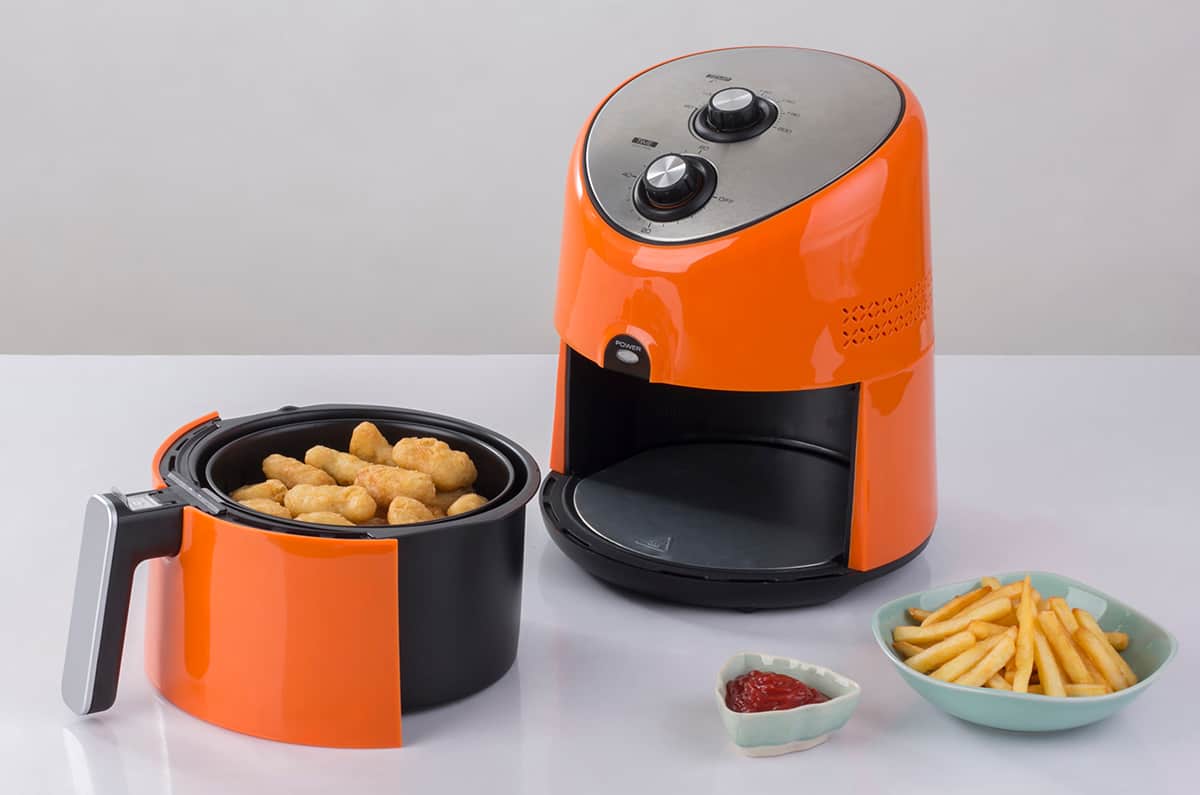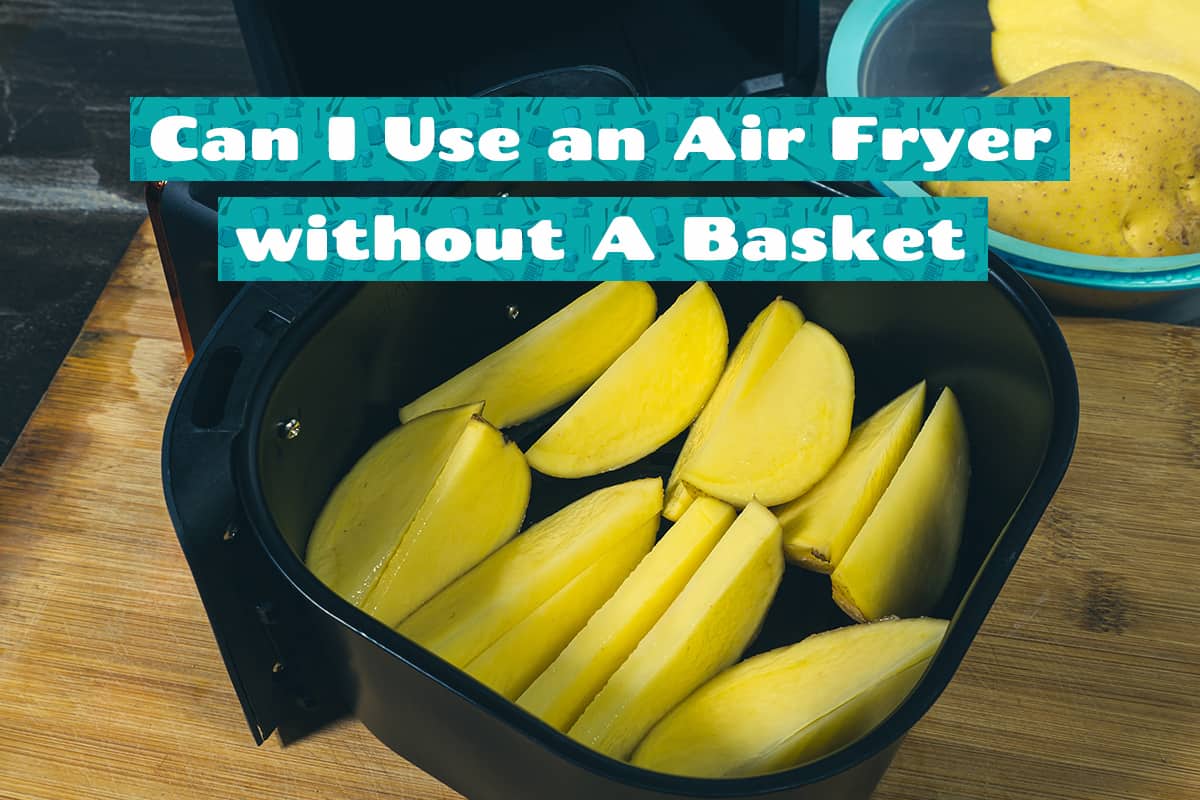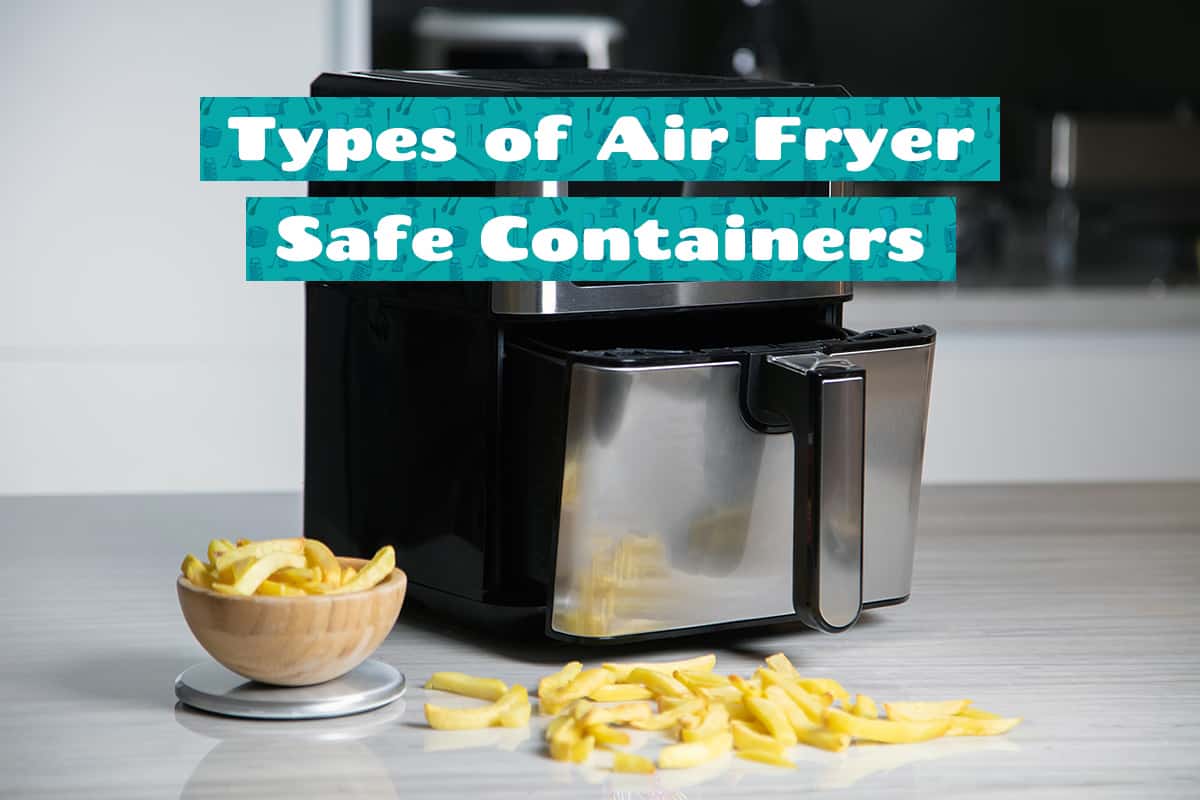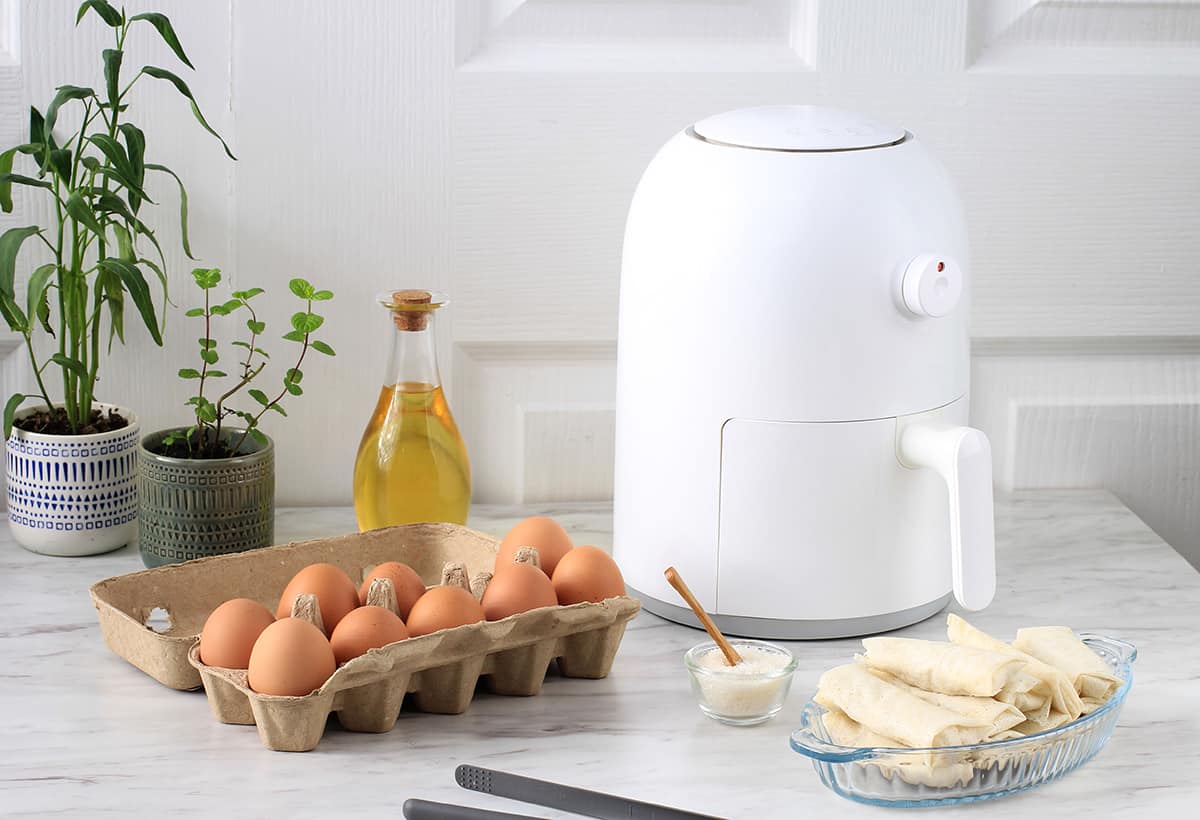Air fryers have become a popular kitchen appliance for health-conscious cooks and busy families alike. These handy devices use hot air circulation for cooking food, resulting in crispy, delicious dishes with less oil and fewer calories than traditional frying methods. As air fryers continue to gain popularity, many people wonder about their weight and how it affects their overall cooking experience.
Air fryers typically weigh between 8 and 20 pounds, depending on size, materials, and extra features. Smaller, compact models are lighter, while larger air fryers with more features are heavier. To find the right weight for your kitchen, consider available space, portability needs, and desired features.
In this guide, we will discuss the factors that influence the weight of air fryers, including their materials, size, and additional features. We’ll also explore popular brands and their weights, as well as how weight can impact portability.
Factors Influencing Air Fryer Weight
There are several factors that influence the weight of an air fryer. In this section, we’ll explore the key elements that determine the weight of these appliances, including materials, size, and additional features.
1. Material and Build Quality
Air fryers are made from various materials, such as plastic, stainless steel, and aluminum. Plastic is usually lightweight, while stainless steel and aluminum are heavier but offer better durability. The build quality also affects the weight, as sturdy appliances with thicker walls and well-constructed components tend to be heavier.
2. Size and Capacity
Air fryers come in different sizes and capacities, ranging from compact models for single users to larger units for families. Smaller air fryers weigh less, while larger ones are heavier due to increased materials and size. When choosing an air fryer, consider the capacity you need and how it affects the weight of the appliance.
3. Additional Features
Many air fryers include extra features and accessories, such as multiple cooking modes, digital displays, and dishwasher-safe components. These added features can increase the weight of an air fryer, but they also provide convenience and improved functionality. When comparing air fryers, consider the features you value most and how they may affect the overall weight.
4. Air fryer weight summary table
Here are the weights of some of the most popular air fryer models available today.
| Brand and model | Capacity | Weight |
| Ninja AF161 | 5.5 quarts | 11 lbs. |
| COSORI Pro II | 5.8 quarts | 12.3 lbs. |
| COSORI Pro Le | 5 quarts | 12 lbs. |
| DASH Compact | 2 quarts | 5.7 lbs. |
| Instant Vortex Plus | 6 quarts | 14.63 lbs. |
| Ninja DZ401 | 10 quarts | 19.8 lbs. |
| Ninja SF301 | 6 quarts | 16 lbs. |
| GoWISE USA GW22956 | 7 quarts | 17.11 lbs. |
| Ultenic K10 | 5.3 quarts | 9.04 lbs. |
Air Fryer Weight and Portability
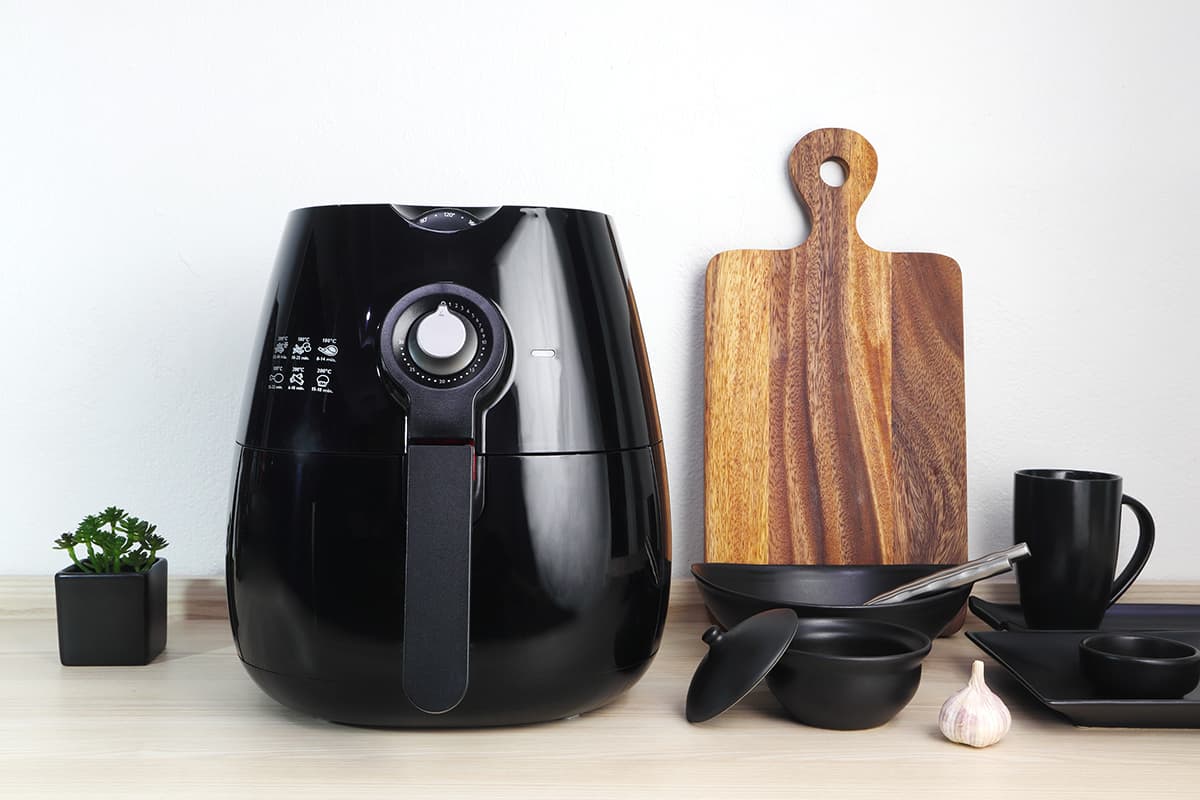
Let’s see how the weight of an air fryer affects its movement and storage in your kitchen.
Weight and portability
Lighter air fryers are generally easier to move around and store, which can be helpful in kitchens with limited counter space or for those who need to move the appliance frequently. Heavier air fryers, while more stable, may be harder to maneuver and require a dedicated spot on your counter.
Easy movement and storage
When choosing an air fryer, consider the available space in your kitchen, how often you plan to move it, and the appliance’s dimensions. Opt for a lightweight model if portability is a priority, but ensure it has the features and capacity you need. Measure your counter space and storage area to ensure the air fryer will fit comfortably in your kitchen.
Choosing the Right Air Fryer for Your Needs

In this section, we’ll learn how to strike the perfect balance between various air fryer features to find the best air fryer model.
1. Weight, size, and capacity
When shopping for an air fryer, it’s essential to find a balance between the appliance’s weight, size, and capacity. Lightweight models are more portable, but they may have a smaller cooking capacity. Heavier air fryers tend to have larger capacities and more features but can be more challenging to move and store. Determine your priorities and choose an air fryer that best suits your requirements.
Kitchen space and usage patterns
Your kitchen’s available space and your cooking habits play a significant role in choosing the right air fryer. Assess your counter space, storage options, and how often you plan to use the appliance. If you have limited space or need to move the air fryer frequently, a compact, lightweight model may be more suitable. If you have ample space and need a larger cooking capacity, a heavier model could be a better fit.
Tips for making an informed decision
- Research popular brands and read customer reviews to gauge product quality and reliability.
- Determine the features you value most, such as cooking modes, temperature control, and easy-to-clean components.
- Compare air fryer models based on weight, size, capacity, and features to find the one that best meets your needs.
- Measure your kitchen counter and storage spaces to ensure the air fryer you choose will fit comfortably.
- Always check the manufacturer’s warranty and customer support options to ensure a smooth ownership experience.
FAQs
1. Do heavier air fryers perform better?
Heavier air fryers don’t always perform better, though, due to their larger capacities, may use more power to run. The performance depends on the technology used, design, and build quality. A well-designed, lightweight air fryer can work just as well as a heavier one.
2. What is the average weight of a 5-quart air fryer?
The average weight of a 5-quart air fryer is around 12 to 16 pounds. This can vary depending on the brand, materials used, and extra features. Some air fryers may be lighter or heavier, so always check the specific product details before buying.
3. Are lightweight air fryers more prone to damage?
Lightweight air fryers are not necessarily more prone to damage. The durability depends on the materials and build quality. High-quality, lightweight materials can make a sturdy and long-lasting air fryer. When choosing an air fryer, look for a reputable brand and read customer reviews to ensure you’re getting a durable product.
4. Can the weight of an air fryer affect cooking times?
The weight of an air fryer doesn’t directly affect its cooking times. Instead, cooking times are influenced by factors like temperature settings, cooking capacity, and how the heat circulates inside the appliance. Heavier air fryers may take slightly longer to heat up, but this difference is usually minimal and shouldn’t impact your overall cooking time.
